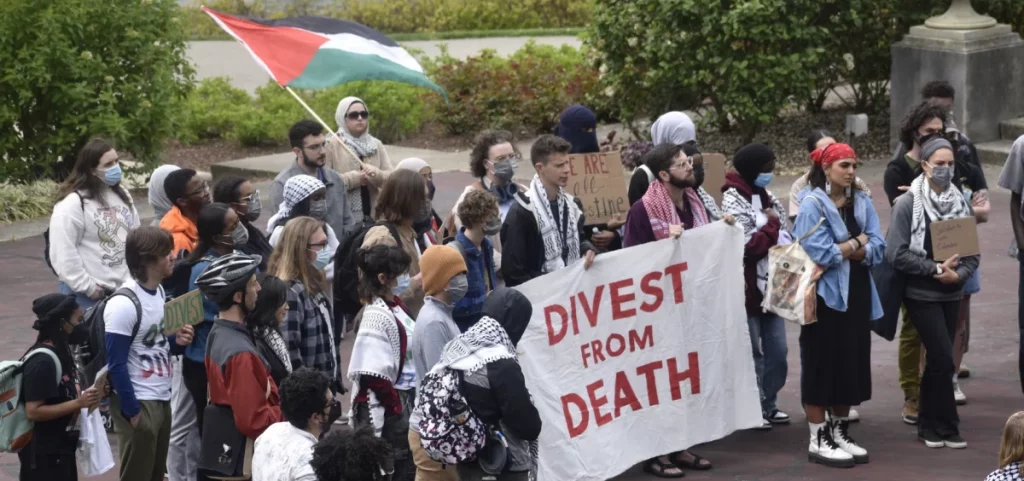In 2016, Ohio became the 14th state to ban state agencies from boycotting Israel or from entering into contracts with companies that have anti-Israel policies. In 2022, the law was amended to include universities — but this only applies to public ones.
“(Israel) is an important ally that has been under intense threat from their neighbors for a very, very long time – actually, from their inception,” said Sen. Jerry Cirino (R-Kirtland), who sponsored that change to the law. “So I think that’s why we in the United States have, from a policy perspective, have gone out of our way to single out Israel as a very special ally of ours.”
Cirino said state law holds for public institutions, even if students want their university to divest away from Israel.
“Private universities and colleges can do that. They are free to do so. Public institutions that receive taxpayer dollars should follow and must follow Ohio law,” Cirino said. “There could be groups of students who feel differently about that part of Ohio law and probably many other aspects of Ohio law. We can’t leave it in their hands to revise code as they see fit.”

Jani also pointed out that Ohio State divested from South Africa because of its apartheid policy in the late ’70s, and in 2022, the university lost Russian-made food-delivering robots after GrubHub ended a partnership with that manufacturer after Russia invaded Ukraine.
Jani is troubled by the law enforcement action at Ohio State after a large protest on April 25 that went on into the night. OSU said demonstrators were warned not to set up tents for an encampment. As some protesters gathered for an evening prayer and others encircled them, law enforcement moved in. More than 40 people were arrested.
“It’s extremely painful. And it also makes me extremely angry,” Jani said. “And this is not this is not how we should be treating students at Ohio State or anywhere else in the country.”
But Cirino praised the response from Ohio State administration, saying protests have moved from expressions of free speech to events where policies and laws are violated.
“Everybody should feel safe to pursue their educational interests. And on so many campuses today in Ohio and outside of Ohio, particularly, this is what has been happening,” Cirino said. “It is antithetical to what should be going on in higher education.”
Last year the US Supreme Court declined to hear a case on a ban to divest from Israel in Arkansas, letting stand a lower court ruling upholding the law.

